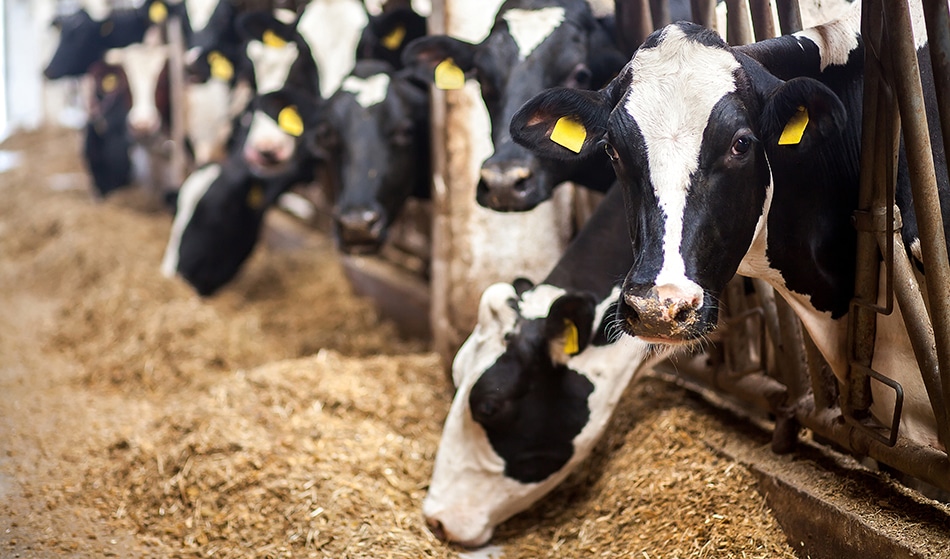AOAC 2011.03 E. coli O157:H7 Detection in Agricultural Products
The AOAC International standard method AOAC 2011.03 is a widely recognized procedure for detecting E. coli O157:H7 in agricultural products, including fresh produce and animal feed. This method plays a crucial role in ensuring the safety of food products from farm to table by identifying potential sources of contamination that could lead to outbreaks of foodborne illness.
The significance of this test cannot be overstated given the global health impact of E. coli O157:H7. This strain is particularly dangerous because it can cause severe symptoms such as bloody diarrhea, abdominal cramps, and in rare cases, life-threatening complications like hemolytic uremic syndrome (HUS). Detecting this pathogen early in agricultural products helps prevent contamination from reaching the consumer market.
The AOAC 2011.03 method involves several key steps: sample preparation, enrichment, isolation, identification, and confirmation of E. coli O157:H7. Sample preparation typically includes thorough homogenization followed by dilution if necessary to ensure accurate quantification. The samples are then inoculated into a selective media that allows for the growth of only those bacteria that possess the specific combination of O157 and H7 antigens.
After incubation, colonies suspected of being E. coli O157:H7 are further identified using biochemical tests or PCR-based techniques to confirm their identity. This multi-step approach ensures high specificity and sensitivity, making it an effective tool for laboratories performing agricultural microbiology testing.
The method is validated against international standards such as ISO 16866:2013 and EN ISO 7957:2013, ensuring its reliability and accuracy. Compliance with these standards is crucial for maintaining trust in the food safety industry and meeting regulatory requirements set by bodies like the Food and Drug Administration (FDA) and the European Commission.
Implementing the AOAC 2011.03 method in agricultural product testing not only enhances public health but also supports sustainable practices by identifying contaminated batches early, thereby minimizing waste and reducing economic losses due to recalls.
Eurolab Advantages
EuroLab, your partner in agricultural microbiology testing, offers unparalleled expertise and cutting-edge technology for detecting E. coli O157:H7. With a team of highly qualified professionals and state-of-the-art facilities, we ensure the highest standards of accuracy and precision.
- Advanced Instrumentation: Equipped with the latest in microbiological testing equipment, our laboratories can provide rapid and reliable results.
- Comprehensive Expertise: Our team includes experts in agricultural science who understand the complexities of food safety issues related to produce and feed.
- Regulatory Compliance: We adhere strictly to international standards and guidelines, ensuring that our methods are up-to-date with current regulatory requirements.
- Quality Assurance: Our processes are designed to meet the stringent quality assurance criteria set by global health organizations.
Choosing EuroLab means entrusting your agricultural product safety to a team dedicated to providing accurate, reliable, and timely results. Whether you need routine testing or emergency response during contamination events, our comprehensive services ensure that your products remain safe for consumption.
Environmental and Sustainability Contributions
The detection of E. coli O157:H7 in agricultural products is not only about food safety; it also plays a critical role in promoting environmental sustainability. By identifying contaminated batches early, we help minimize waste by avoiding the distribution of potentially harmful products to consumers. This proactive approach reduces the carbon footprint associated with producing and transporting food that might otherwise be discarded.
Moreover, early detection allows for targeted interventions at the source, which can lead to more efficient use of resources in agricultural production. For instance, contaminated batches can be isolated, treated, or destroyed before they reach consumers, thereby preventing further spread of contamination. This selective approach ensures that only safe and high-quality products enter the market, contributing to both consumer health and environmental protection.
Our commitment to sustainability extends beyond just detection; it includes continuous improvement in our testing methods and processes. By staying at the forefront of microbiological research and adopting innovative technologies, we ensure that our services remain effective and efficient, further supporting sustainable practices in agriculture.
Competitive Advantage and Market Impact
- Swift Turnaround Times: With EuroLab's advanced facilities and experienced staff, you can expect timely results even for large volumes of samples. This speed is crucial in today’s fast-paced market where quick decisions are necessary to maintain supply chain integrity.
- Accurate Results: Our stringent quality control measures ensure that every test result meets the highest standards of accuracy and reliability, giving you confidence in your product safety claims.
- Comprehensive Reporting: Beyond just detecting E. coli O157:H7, our reports provide detailed insights into potential sources of contamination, helping you implement targeted corrective actions to prevent future incidents.
- Regulatory Compliance: By adhering strictly to international standards and guidelines, we help ensure that your products comply with all relevant regulations, opening up new markets and enhancing your brand reputation.
The AOAC 2011.03 method is a cornerstone of our service offering for detecting E. coli O157:H7. By leveraging this standard alongside our advanced technology and expert knowledge, we provide businesses with the competitive edge they need to thrive in today's highly regulated food safety environment.





